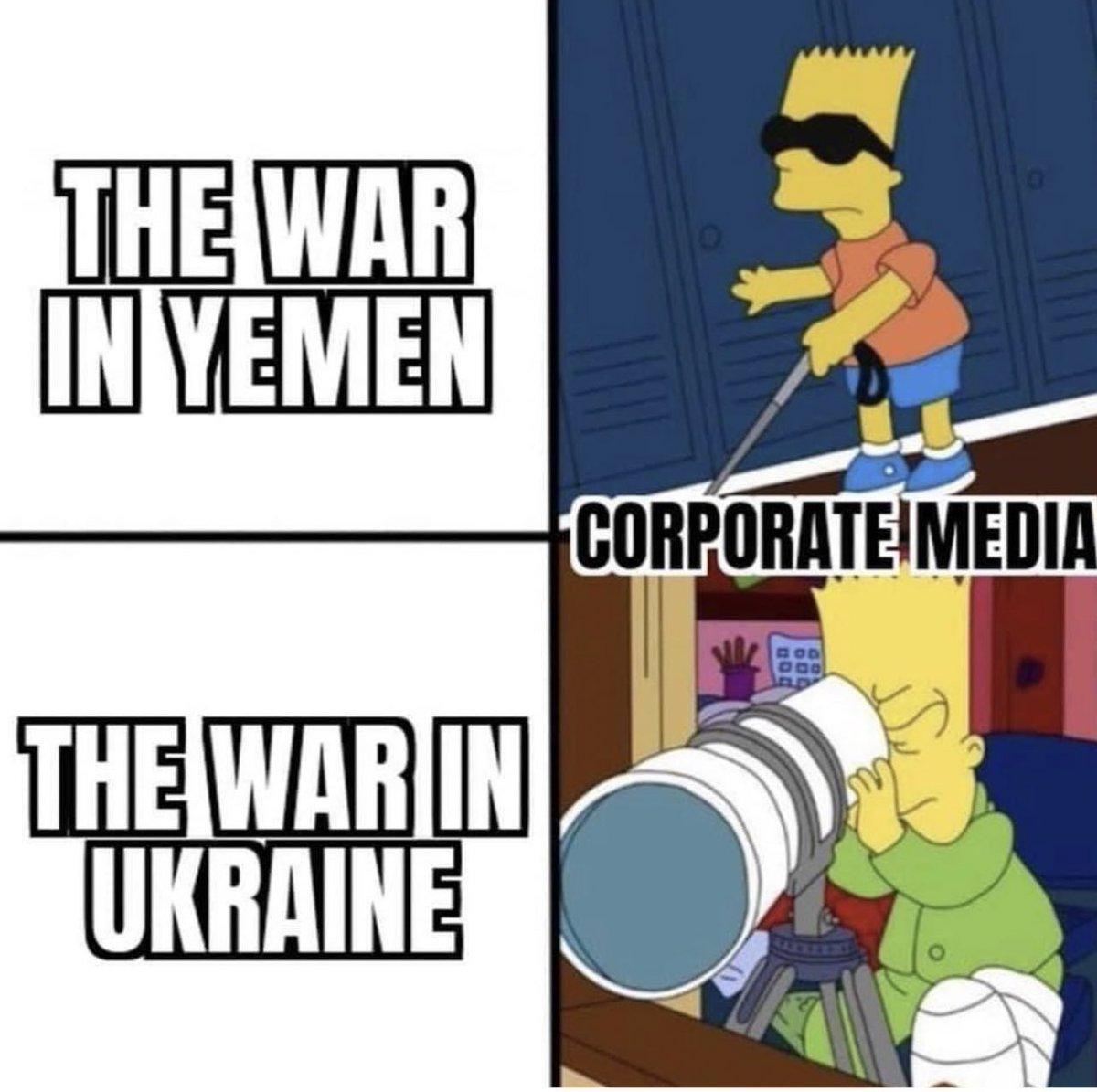
Some Victims Are More Worthy Than Others in Our Orwellian Media Landscape
The U.S. media have been dominated by images of Ukrainians suffering under the Russian invasion.
New York Times columnist David Brooks wrote characteristically that Joe Biden had “masterly and humbly helped organize a global coalition” of Good and Democracy—and “restored faith in true patriotism.”[1]
In order for the chosen ones to succeed in their democratic mission, Thomas L. Friedman further intoned, the official Obstructor has to be contained, put in an “isolation cell. The same for the larger Russian public.”[2]
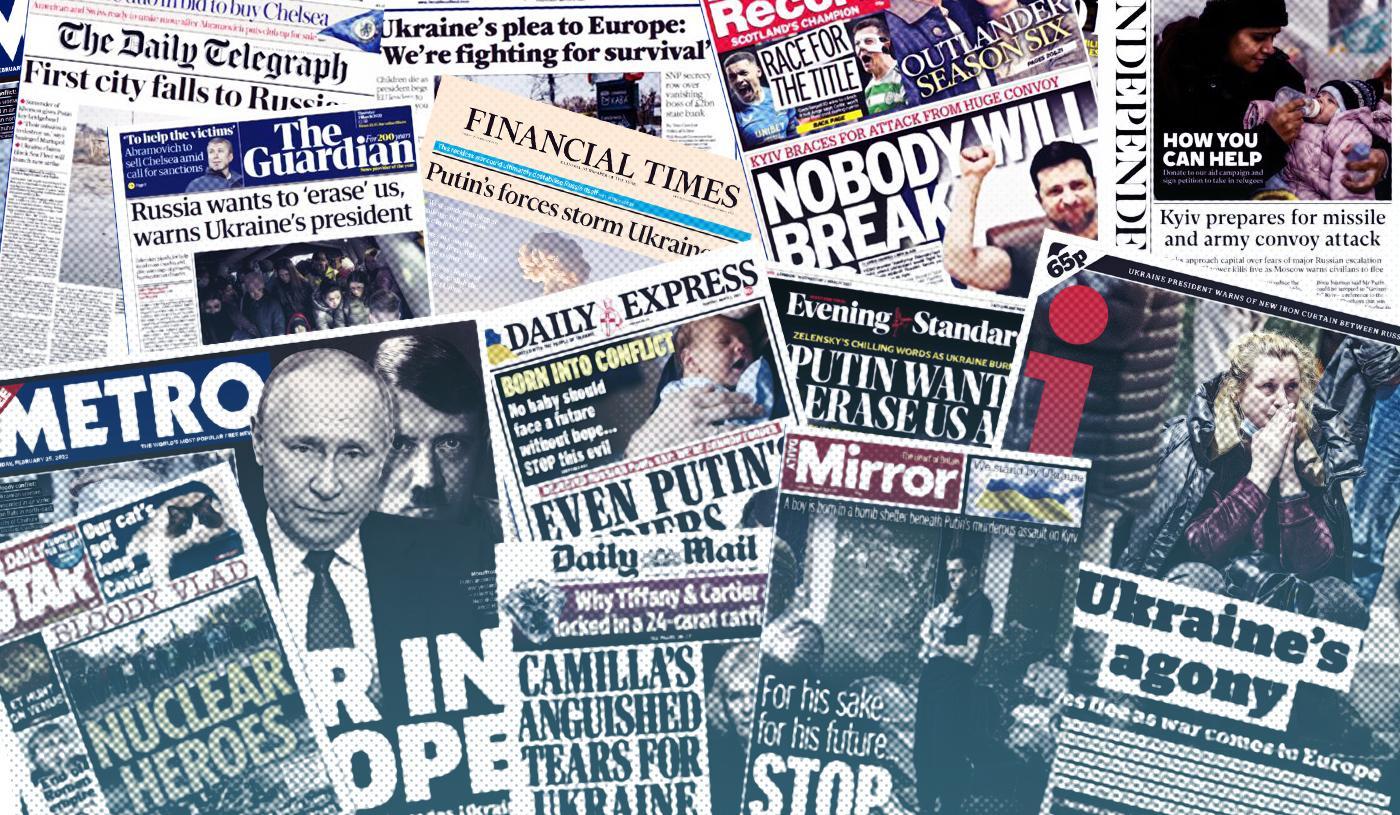
Russia, together with “China […] as well as Iran, Venezuela, Cuba”, is conducting “a rollback” of our arduous attempts at peace and democracy, says Francis Fukuyama.[3]
And so the free press goes on, virtually without exception.

David Brooks [Source: businessinsider.com] 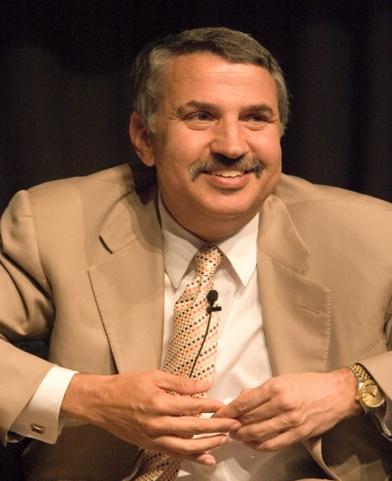
Thomas L. Friedman [Source: wikipedia.org] 
Francis Fukuyama [Source: cddri.fsi.stanford.edu]
The method is to denounce the crimes of official government enemies, while staying silent about the crimes of the U.S. government or its allies.
As an example, the media have failed to report on large-scale war crimes committed by the Ukrainian Army in Eastern Ukraine. The plight of Yemenis subjected to years of international terror by some of the most powerful nations on Earth has also been ignored.

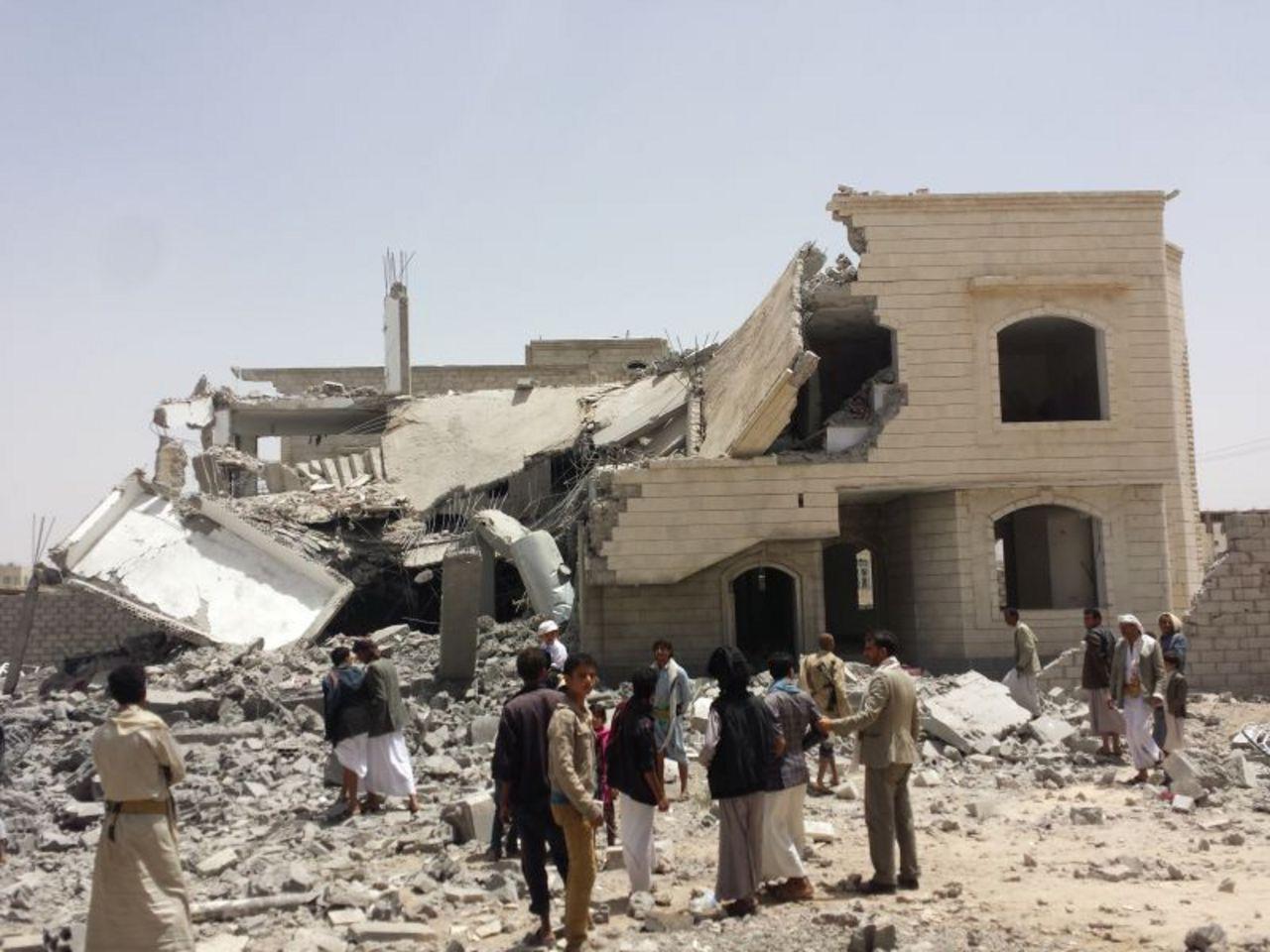
The people of Yemen have now been given “a death sentence” since “the scale of the current gaps” of humanitarian funding “are unprecedented,” as UN official Martin Griffiths noted.[4]
The same day Russia invaded Ukraine, the UN warned for the first time that thirteen million Yemenis now face “the threat of starvation.” The World Health Organization (WHO) further warned of 20 million Yemenis running the risk of being infected with malaria.[5]
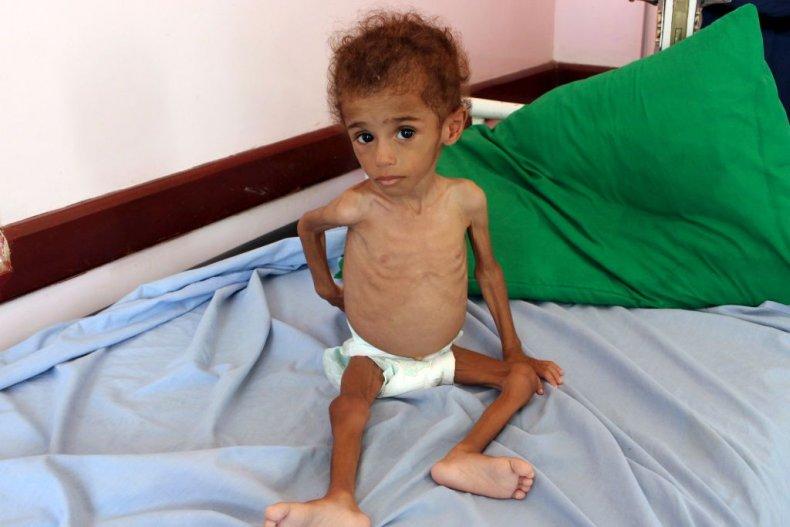
Naturally, this is more or less a completely manufactured situation largely due to the years of blockade, bombing and aggression by the Saudi coalition, including the Western states.
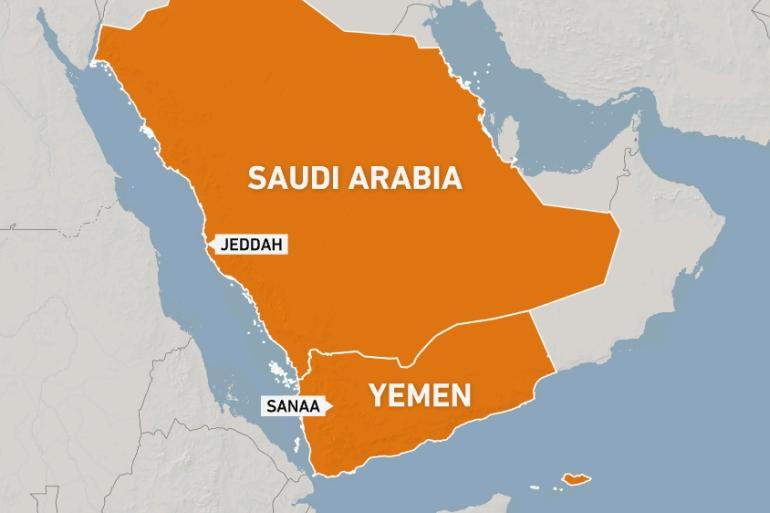
Since war broke out in 2015, the U.S.-Saudi coalition has claimed to be defending the legitimate government of Yemen in the face of a rebellion by the Houthi minority group backed by Iran. The Houthis, however, have had legitimate grievances against the corrupt U.S.-Saudi imposed government and have sought to restore the traditional power of the Zaydeh clan, which promotes a divergent brand of Islam from the Iranian mullahs.[6]
A UN report noted that the blockade alone prevented 350,000 tons of food from entering Yemen during the first few months of 2021 alone.[7]
Furthermore, the blockade prevented oil, worth $12 billion, from being imported during the same year; the country is practically “entirely dependent” on imports of essential goods such as food, since only 1-3% of its land is arable.[8]
Yemen’s Aviation department warned that “more than a million patients are at risk of death as a result of the lack of many medicines,” depleted due to the blockade and war.
It is in other words, as the Norwegian Refugee Council reported, “like a hostage situation.”[9] The Coalition seems to have intentionally disproportionally bombed key import ports, such as Hodeidah. A report from the summer of 2021 by the Human Rights Office in Hodeidah, documented that:
economic facilities that were […bombed by the Coalition…] amounted to more than 4,255 facilities included […] nine sea ports, 97 power plants, 41 communications networks, 637 water tanks, 211 government facilities, 749 roads and bridges, 90 factories, 57 fuel trucks, 2,226 commercial facilities, 78 chicken and livestock farms, 972 means of transportation, 392 fishing boats, 213 food stores, 53 gas stations, 49 markets and 125 food trucks.[10]
Thus, no one can be seriously surprised over the grizzly facts mentioned above.
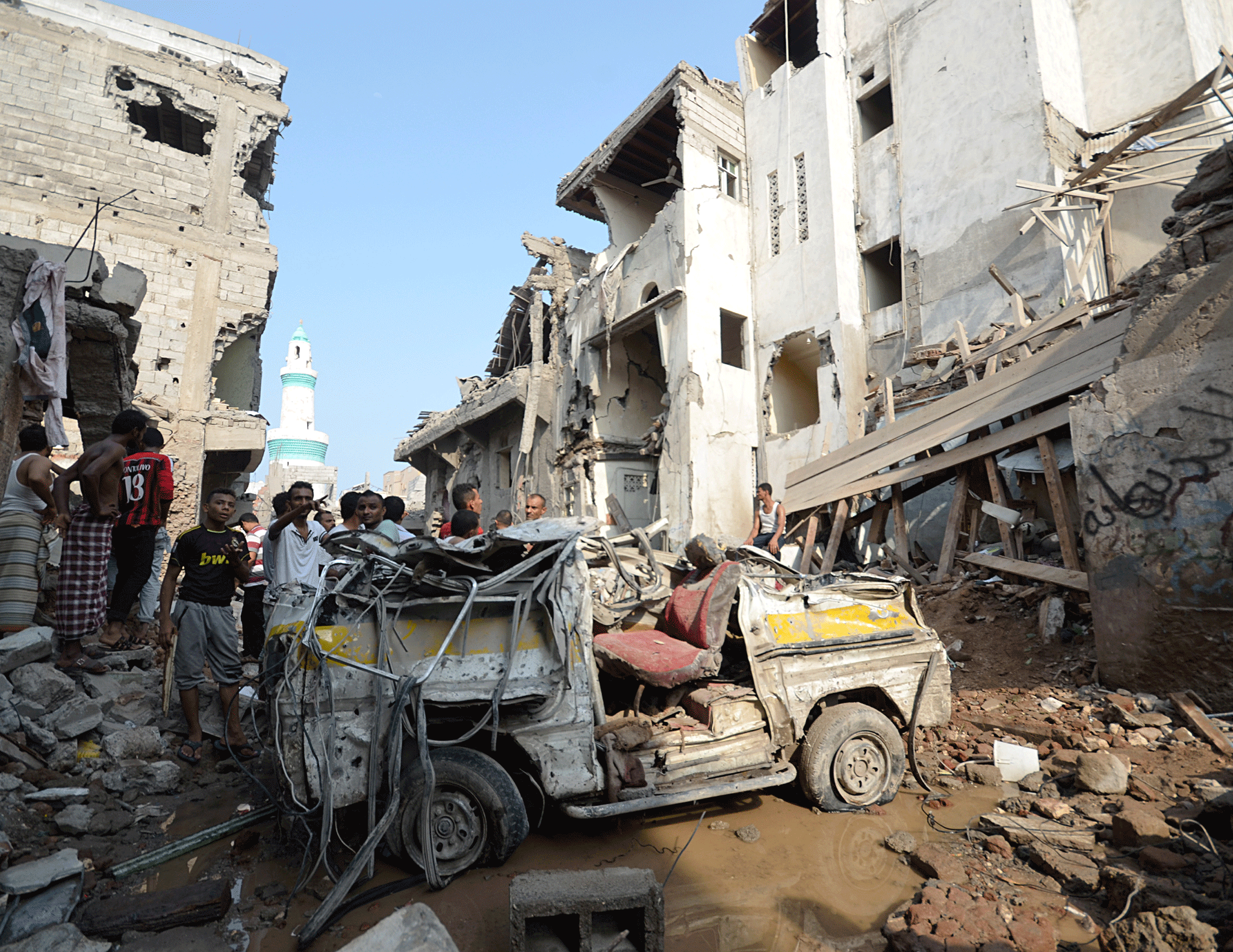
In this discussion, one has to be clear about what the situation really is. In March 2015, an internal coup against a despised dictator took place; a dictator who had cheated in the 2012 election and who has illegitimately held the power nominally since. What followed was an attack and invasion of Yemen by Saudi Arabia and the United Arab Emirates (UAE) together with virtually the entire West.
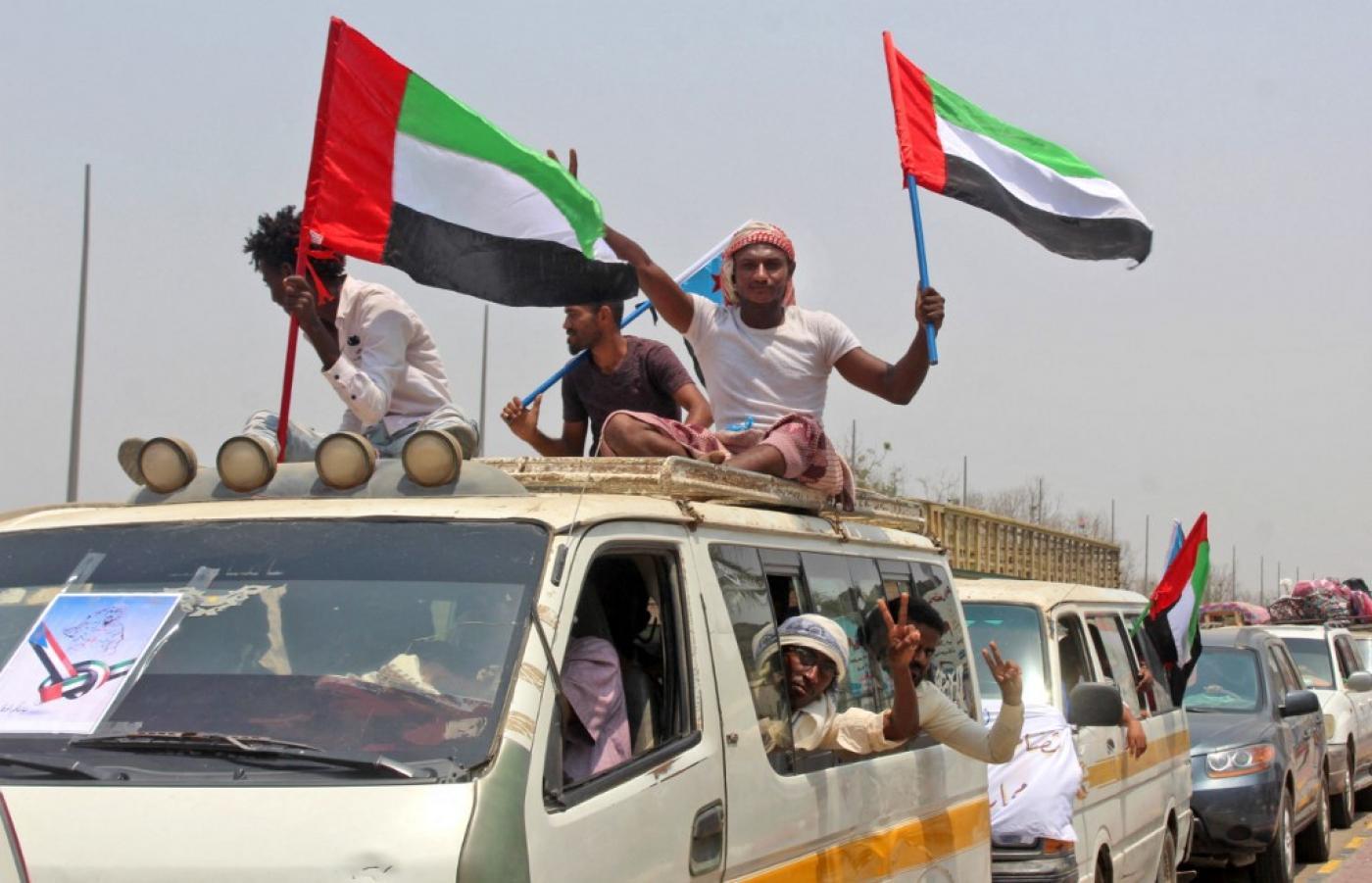
IN a standard scholarly study, Asher Orkaby writes: “At its core, the current Yemen conflict […] is nothing more than ‘a centuries-old method of regime change.’”[11] It is superfluous to point the reader to another current situation this reminds one of.
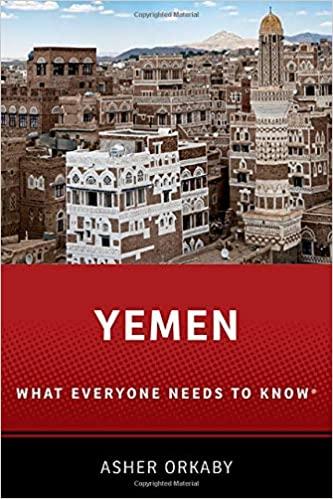
By the most elementary standards of logic, the West would be condemning these atrocities, imposing the harshest of reprisals on the Coalition, sending billions of dollars to its adversaries and so on.
There would be enormous reports about the humanitarian crisis in Yemen, and the free press would have produced a massively indignant commentary about the “mass humanitarian suffering, and with manifold war crimes,” as Foreign Affairs put it regarding Russia’s provoked invasion of Ukraine.[12]
Fact: We have been supporting the terror directly, throughout, and not even the most bitter condemnations by the UN have succeeded in stopping our “masterly and humbly” executed “democratic” experiments in the region—namely, to quote the UN, “providing arms and military support” and thereby “perpetuating” the slaughter.[13]
During the last couple of months alone, the U.S. has provided Saudi Arabia with more than $1 billion in missiles and service of their attack helicopters—all to keep the bombardments running at its impressive current rate, killing at least 20,000 civilians, according to an expert UN panel.[14]

Furthermore, the U.S. has participated in Saudi Arabia’s occupation of Yemen. Internal documents from the U.S. Air Force concede that a few hundred special forces are in Yemen to train Arabian pilots, meaning “yet another U.S. form of complicity in a brutal war” of aggression “that has gone on for far too long,” as William Hartung pointed out three years ago.[15]
And the intentions are perfectly clear: We want the war to continue. The U.S. covets the strategic island of Socotra off Yemen which it will stop at nothing to secure. The U.S. also needs to continue to access cheap oil from the Saudis, so will continue to support their criminal adventures. Tim Lenderking, U.S. special envoy for Yemen, complained recently in a leaked diplomatic document about Saudi Arabia wanting to end the war due to their tactical failures. Luckily, Lenderking was able to convince them of “the necessity of not leaving Yemen completely.”[16]
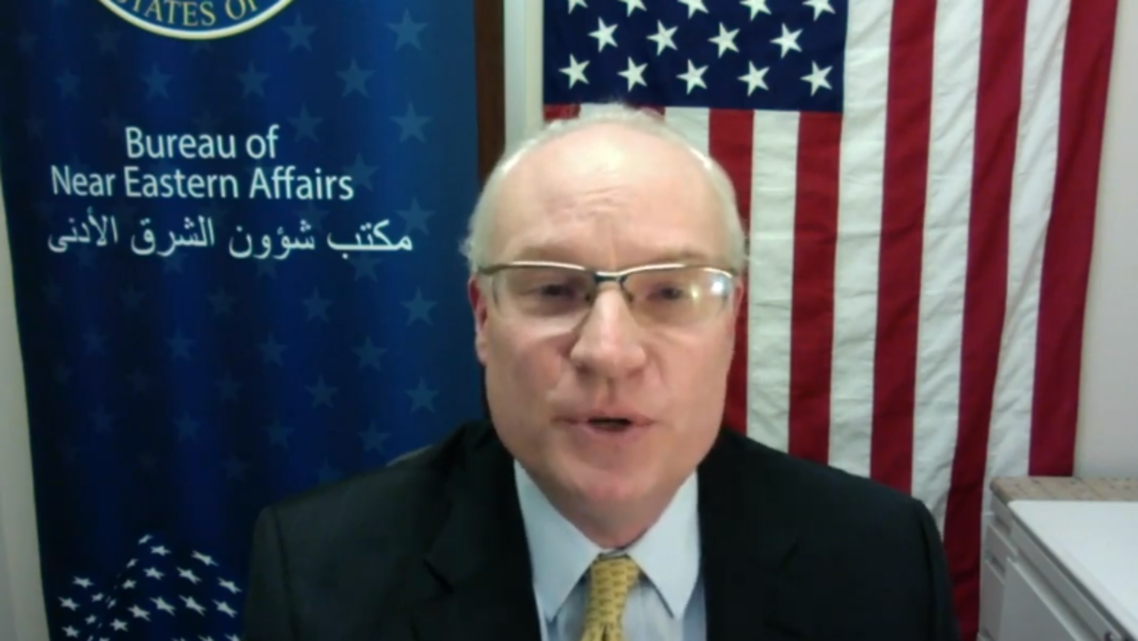
But the U.S. is not alone in this. The internal British documentary record notes that London has a military presence in the southern and eastern parts of Yemen. “They are a fully-fledged force. We can’t say they are minor,” as one local commentator put it.[17]
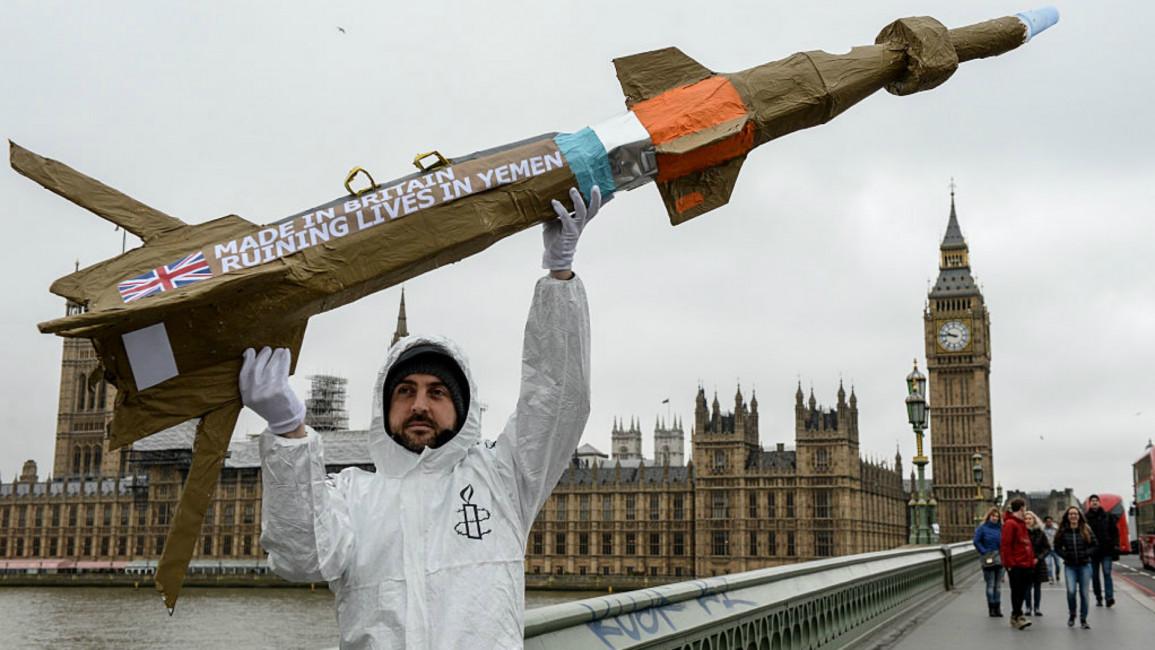
More significant, perhaps, are the arms export to Saudi Arabia and the UAE worth $27 billion. The press was informed in September of last year that France was risking being brought to court for having funded Saudi Arabia with 70 attack jets used to bomb Yemenis—and much of its other weapons exports are unknown.[18]
Between 2018 and 2020, Germany sold 4.7 billion Euros worth of military equipment to Egypt, Algeria, Qatar, Saudi Arabia and the United Arab Emirates (UAE). From 2012-2017, Saudi Arabia bought $3 billion worth of weapons from Germany.
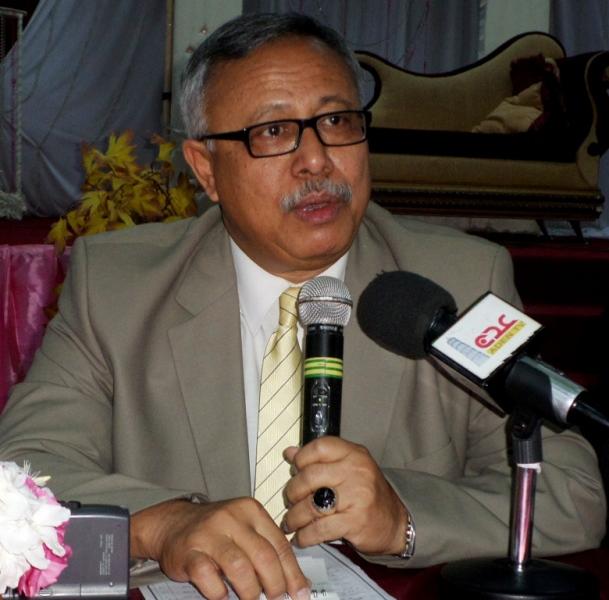
Nevertheless, Yemen’s Prime Minister, Abdel-Aziz bin Habtoor, revealed in an interview late last year what was already obvious, namely that the
British presence is concentrated […] in favor of Saudi interests in extending the oil pipeline project […The UAE is…] a very cheap tool used by the Americans and the British […] The UAE wants to secure the interests of a geographical type, and Saudi Arabia wants to secure its strategic projects with a long-term economic dimension. The conflict that is taking place by the new colonists in the south [UAE] is about their own interests.[19]
These statements are crucial, since it was reported the very same day that the invasion of Ukraine happened (February 24), that UAE-backed forces “started to build” infrastructure in Yemen, in order to “separate southern Yemen from its north, and declare a loyal state in southern Yemen by supporting and adopting separatist factions”—as bin Habtoor had already indicated.[20]
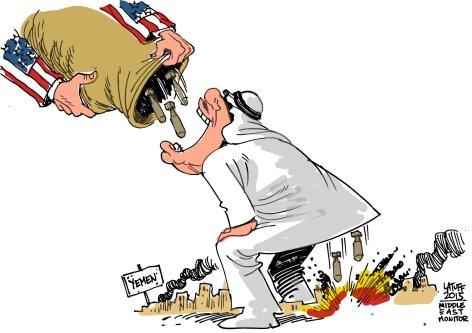
Again: The UAE has been a key perpetrator of aggression since day one. How, then, has the free world and the free press responded? They have responded with the typical response, namely, with continued support and silence.
No talk of a “rollback” of human rights when the “wrong” people are the perpetrators. In fact, not long prior to the declaration, France announced yet another weapons contract with the UAE of 80 Rafale attack jets worth $19 billion, a “historic” deal.[21]
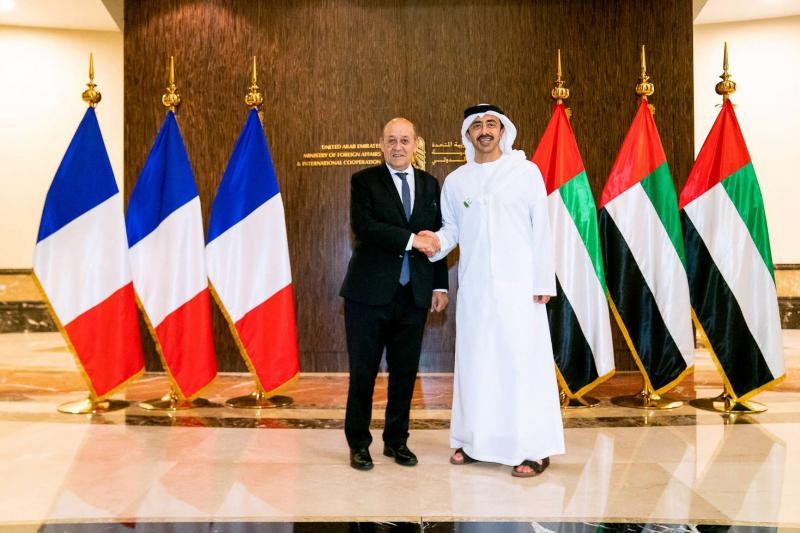
In other words, we have a case of international violence, aggression, occupation, and terror—and with the full support of the West.
How, then, is it that the International Criminal Court has not produced a condemnatory report about all of this?
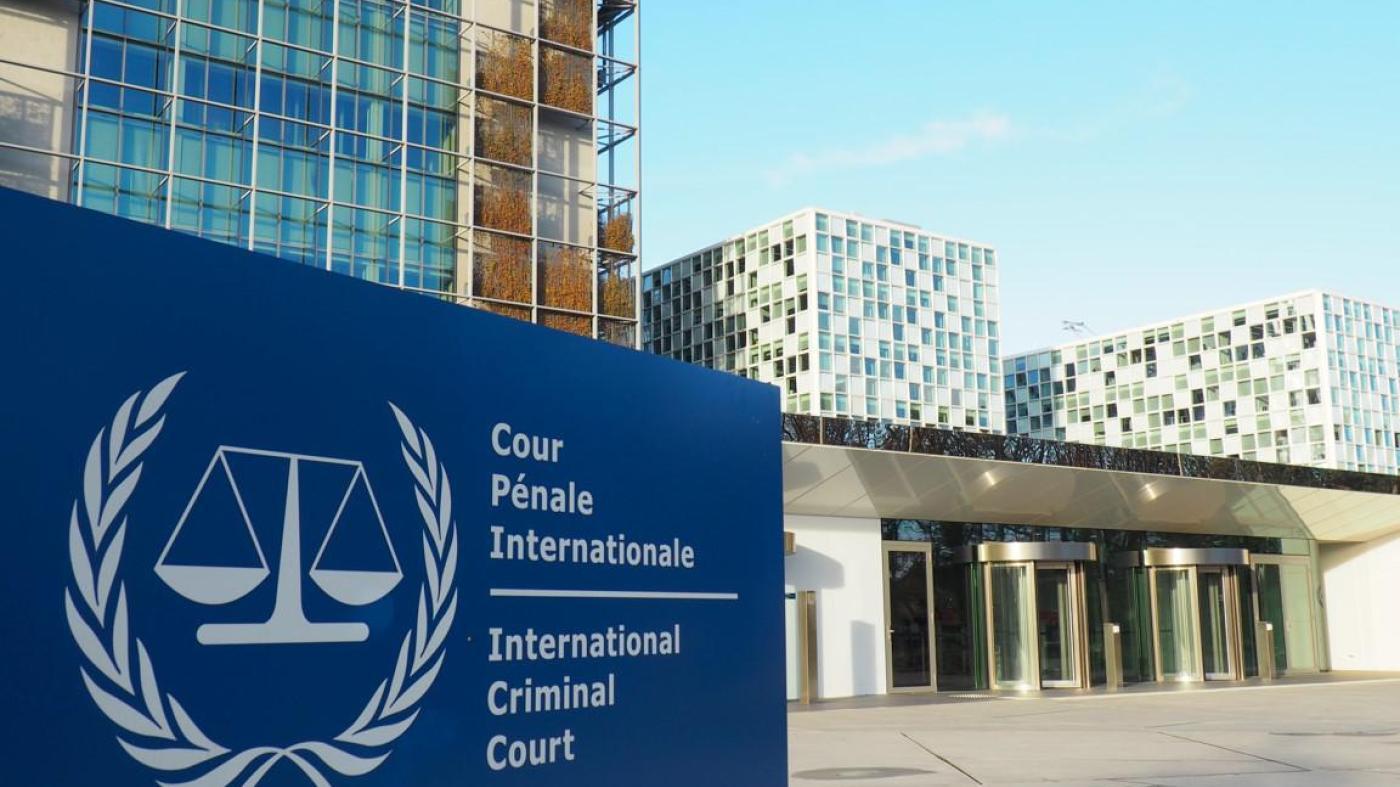
After all, the evidence for such is simply overwhelming. Well, again, there are details one could turn to on that, though do not expect to find it discussed in The New York Times.
Despite international “lawyers urging the International Criminal Court,” nothing is happening.[22] And the reason is simple as to why this international aggression is not being investigated, as we will learn from a long and detailed study from Mtwana—a leading human rights organization in the Middle East.
They note that “likely vetoes by United Nations Security Council members such as France, the UK and the U.S. pose political obstacles to doing so”—one of the funny features of the democratic “global coalition.”[23]
All of this leads to an obvious conclusion—almost to the point at which it becomes too obvious to enunciate. The conclusion we draw from this is that our sudden commitment to human rights and suffering, in the case of Ukraine, is not much more than shameless cynicism, since we for years have supported international terror and aggression of the most awesome proportions.
Ukraine and Yemen are in a sense a rare controlled study history has set up. The primary differences? In one case, the “right” people are carrying out the atrocities; in the other, the “wrong” people are doing so.

-
David Brooks, “The Week That Awoke the World,” New York Times, March 3, 2022, https://www.nytimes.com/2022/03/03/opinion/ukraine-russia-awoke-world.html ↑
-
Thomas L. Friedman, “I See Three Scenarios for How This War Ends,” New York Times, March 1, 2022, https://www.nytimes.com/2022/03/01/opinion/ukraine-russia-putin.html ↑
-
Francis Fukuyama, “Putin’s War on the Liberal Order,”: Financial Times, March 3, 2022, https://www.ft.com/content/d0331b51-5d0e-4132-9f97-c3f41c7d75b3 ↑
-
Voice of America, Feb. 15, 2022, https://www.voanews.com/a/6420861.html ↑
-
Associated Press, Feb. 24, 2022; Middle East Eye, Sep. 22, 2021; Middle East Monitor, Oct. 20, 2021. ↑
-
See Issa Blumi, Destroying Yemen: What Chaos in Arabia Tells Us About the World (Berkeley, CA: University of California Press, 2018). ↑
-
William Hartung, “Are We Pressing Saudi Arabia Enough on the Yemen Blockade?” Responsible Statecraft, April 7, 2021, https://responsiblestatecraft.org/2021/04/07/is-biden-pressing-saudi-arabia-enough-to-lift-the-yemen-blockade/ ↑
-
Yemen Press Agency, Nov. 15, 2021; “Food war: How the Saudi-led coalition uses French Weapons to starve millions of civilians in Yemen,” Disclose, April, 2019. ↑
-
MEMO, Aug. 11, 2021. ↑
-
YPA, Jul. 30, 2021. ↑
-
Asher Orkaby, Beyond the Arab Cold War (New York: Oxford University Press, 2017), 214. ↑
-
Liana Fix and Michael Kimmage, “What if Russia Loses?” Foreign Affairs, March 4, 2022. ↑
-
MEMO, September 15, 2021. ↑
-
Antiwar, Nov. 4, 2021; AP, Sep. 9, 2021. For further details about U.S. weapons exports to Saudi Arabia, see William Hartung,“Arming Repression: U.S Military support for Saudi Arabia from Trump to Biden” in Center for International Policy, Dec. 2021. ↑
-
Nick Turse, “Despite Denials, Documents Reveal U.S. Training UAE Forces for Combat in Yemen,” Yahoo News, January 16, 2019. ↑
-
MEE, Jan. 28, 2022. ↑
-
MEMO, Jul. 8, 2021. ↑
-
MEMO, Jul. 16, 2021. For further detail, see MEE by Bourne (Jul. 5, 2021); MEMO, Sep. 24, 2021. For a detailed study, see footnote 10. ↑
-
MEMO, Jan. 19, 2022. For a condemnation by 40 leading Human Rights organizations, see Cairo Institute for Human Rights Studies, Nov. 16, 2021. See also YPA, Oct. 15, 2021. ↑
-
YPA, Feb. 24, 2022. ↑
-
MEMO, Dec. 3, 2021. ↑
-
Charles Hymas, “British Lawyers Mount Bid for War Crimes Inquiry into Saudi-Led ‘Coalition” Massacres in Yemen,” The Telegraph, August 30, 2021, https://www.telegraph.co.uk/news/2021/08/30/british-lawyers-mount-bid-war-crimes-inquiry-saudi-led-coalition/ ↑
-
“Starvation Markets: The use of starvation by warring parties in Yemen,” Mtwana, September 2021, 346. ↑
CovertAction Magazine is made possible by subscriptions, orders and donations from readers like you.
Blow the Whistle on U.S. Imperialism
Click the whistle and donate
When you donate to CovertAction Magazine, you are supporting investigative journalism. Your contributions go directly to supporting the development, production, editing, and dissemination of the Magazine.
CovertAction Magazine does not receive corporate or government sponsorship. Yet, we hold a steadfast commitment to providing compensation for writers, editorial and technical support. Your support helps facilitate this compensation as well as increase the caliber of this work.
Please make a donation by clicking on the donate logo above and enter the amount and your credit or debit card information.
CovertAction Institute, Inc. (CAI) is a 501(c)(3) non-profit organization and your gift is tax-deductible for federal income purposes. CAI’s tax-exempt ID number is 87-2461683.
We sincerely thank you for your support.
Disclaimer: The contents of this article are the sole responsibility of the author(s). CovertAction Institute, Inc. (CAI), including its Board of Directors (BD), Editorial Board (EB), Advisory Board (AB), staff, volunteers and its projects (including CovertAction Magazine) are not responsible for any inaccurate or incorrect statement in this article. This article also does not necessarily represent the views the BD, the EB, the AB, staff, volunteers, or any members of its projects.
Differing viewpoints: CAM publishes articles with differing viewpoints in an effort to nurture vibrant debate and thoughtful critical analysis. Feel free to comment on the articles in the comment section and/or send your letters to the Editors, which we will publish in the Letters column.
Copyrighted Material: This web site may contain copyrighted material the use of which has not always been specifically authorized by the copyright owner. As a not-for-profit charitable organization incorporated in the State of New York, we are making such material available in an effort to advance the understanding of humanity’s problems and hopefully to help find solutions for those problems. We believe this constitutes a ‘fair use’ of any such copyrighted material as provided for in section 107 of the US Copyright Law. You can read more about ‘fair use’ and US Copyright Law at the Legal Information Institute of Cornell Law School.
Republishing: CovertAction Magazine (CAM) grants permission to cross-post CAM articles on not-for-profit community internet sites as long as the source is acknowledged together with a hyperlink to the original CovertAction Magazine article. Also, kindly let us know at info@CovertActionMagazine.com. For publication of CAM articles in print or other forms including commercial internet sites, contact: info@CovertActionMagazine.com.
By using this site, you agree to these terms above.
About the Author

Andi Olluri lives in western Sweden.
He just turned 20 and is studying dietetics.
Andi has been an activist since he was a young teenager.
He can be reached at andi_ronaldo@hotmail.se.

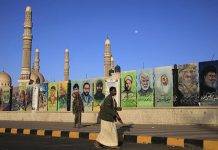
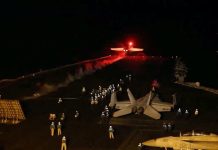


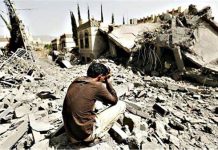

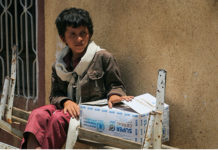
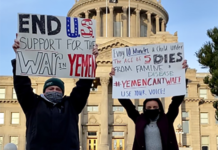

[…] 2022-03-23 As Outrage Grows Over Civilian Casualties in Ukraine, Media Ignores Suffering of Yemeni People The method is to denounce the crimes of official government enemies, while staying silent about the crimes of the U.S. government or its allies. As an example, the media have failed to report on large-scale war crimes committed by the Ukrainian Army in Eastern Ukraine. The plight of Yemenis subjected to years of international terror by some of the most powerful nations on Earth has also been ignored. https://covertactionmagazine.com/2022/03/23/as-outrage-grows-over-civilian-casualties-in-ukraine-med… […]
[…] As Outrage Grows Over Civilian Casualties in Ukraine, Media Ignores Suffering of Yemeni People, by A… […]